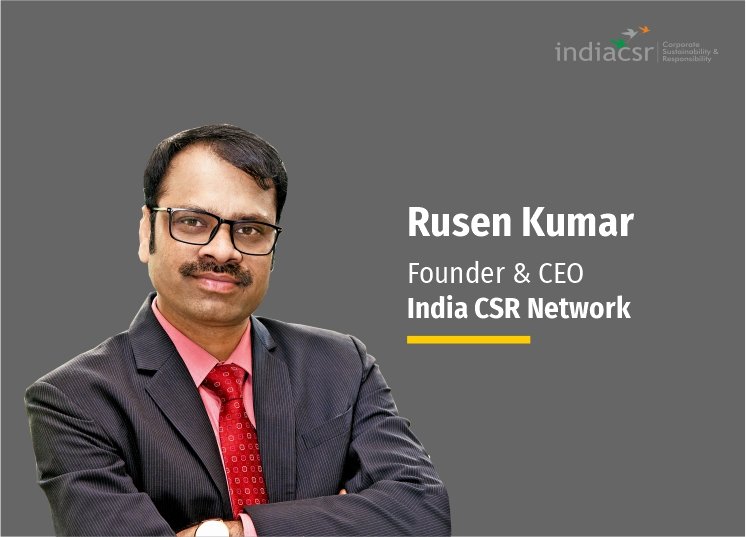
NEW DELHI: About three years ago, Rohit Prasad, a Professor at MDI Gurgaon, started looking for stories of how common people in remote areas of India and the government were championing the use of information and communication technology to transform society. His sunny sense of optimism was subjected to a reality check when he observed the prevailing conditions in these areas. He realized that while technology could play a facilitative role, the real drivers of the abysmal economic outcomes continued to lie in faultlines in the underlying model of development. He decided to realign his focus.
Exploring Democracy and Development
In order to do justice to what he saw, he felt he needed to go beyond conventional tools of his discipline, economics, and delve into the nature of democracy prevailing in these areas. Even beyond, he was drawn to the tapestry of stories, legends, myths, and rumors that formed the interwoven fabric of his subjects’ lives. The result of his adventures is Blood Red River, an exploration of development conflicts in India.
Fair Hearing Amidst Conflict
The unique feature of this book is that, while empathizing with those affected by the juggernaut of development, Prasad gives a fair hearing to the perspectives of those attempting to kickstart industry. The centerpiece of the book is an indepth exploration of the failed Tata Steel Chhattisgarh project. The popular narrative on development conflict would lead us to believe that the project must have failed due to the opposition of the Maoists. Indeed this is the story given out by the company to Prasad.
Unraveling Complexities
However, Prasad’s investigation gives us strong room to believe that the reasons lie elsewhere. A line manager blames the contractor, the contractor blames the lack of resolve of the management, and the management blames the Maoists. However, the real reason for the failure is probably the ups and downs of the global commodities cycle that lead to a wave of consolidation in the steel industry, (including the Tata Corus and the Arcelor Mittal deals) followed by the hard landing of the 2008 financial crisis.
Insights into Corporate Social Responsibility
CSR managers would do well to read the chapter with the interview of the Tata Steel CSR Head carefully. It offers a fascinating portrait of a person trying to do the right thing, in a world which he is unable to control.
Inter-Corporate Warfare and Resource Battles
The book is noteworthy for its illumination of the role of inter-corporate warfare in the battle for natural resources. The Tatas contractor highlights the role of the contractors of rival companies in sabotaging his project. Prasad himself becomes a pawn in an ongoing grudge match between two prominent industrialists. The book has a fascinating account of the details of this case, and sheds a light on inter-corporate rivalry in a manner that no third party reportage can.
Challenging Dichotomies of Development
Finally, the book also highlights the fact that many dichotomies of development are in fact, spurious. One of these dichotomies relates to the conflict between the welfare of the poor and the protection of the environment – forests, rivers, and wildlife. Many people feel outraged that environmentalists want to protect the environment against industrialization. ‘Think of the many poor people who could benefit,’ they argue.
Historical Antecedents and Modern Mindsets
The book outlines the historical antecedents of the present situation and shows it is the result of the pre-dominance of the ‘modernist’ mindset in the dominant powers of the day over the last 200 years. This mindset values the commercial exploitation of natural resources, either for the colonial master, or for the abstract nation state above the preservation of traditional ways of life of indigenous people, the recognition of their customary rights over the land, or the empowerment of local communities.
Provoking Debate and Reflection
Overall, the book is a fascinating portrait of the business environment in extractive industries. It offers insights that all those in the development sector could do well to ponder upon. A fresh debate on the definition of development is the need of the hour, and hopefully the book will provoke that to happen.
About the author:
Rusen Kumar is the editor at India CSR Network
You may also like:
- Smile Foundation: Stars Dazzles on Ramp for Champs
- The Danger of Disinterest: When Books Don’t Attract You – Rusen Kumar
- ASSOCHAM honors Rusen Kumar for remarkable contribution to CSR
- The Culture of giving Should be nurtured and Sustained, Says Rusen Kumar
- Chetak Group inducts Rusen Kumar, a CSR Media Veteran on its Advisory Board







